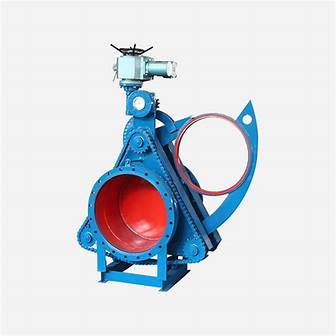stainless slip on flange
The Versatility and Advantages of Stainless Steel Slip-On Flanges
In the realm of industrial piping systems, the components utilized play a significant role in ensuring efficient and reliable operations. Among these vital components, stainless steel slip-on flanges stand out due to their versatility, strength, and ease of use. This article delves into the features, benefits, and applications of stainless steel slip-on flanges, highlighting their importance in various industries.
What are Stainless Steel Slip-On Flanges?
Slip-on flanges are a type of flange that is designed to fit over the end of a pipe. This particular design allows for the flange to be easily welded to the pipe’s surface. Made from high-quality stainless steel, these flanges are known for their excellent corrosion resistance, which makes them suitable for a myriad of applications, especially in challenging environments.
The stainless steel material commonly used in these flanges includes grades such as 304 and 316, both of which offer different degrees of resistance to rust and corrosion. The choice of grade largely depends on the specific application and environmental conditions the flange will encounter.
Advantages of Stainless Steel Slip-On Flanges
1. Ease of Installation One of the primary advantages of slip-on flanges is their straightforward installation process. They require less space for welding compared to other flange types, which simplifies the assembly of piping systems. This ease of use can lead to significant time and cost savings during installation.
2. Cost-Effective The manufacturing process of slip-on flanges is less intensive than that of other flange types, such as blind or weld neck flanges. This efficiency translates into lower production costs, making them a more economical choice without compromising on quality.
stainless slip on flange

3. Strong Joint Integrity When properly welded, stainless steel slip-on flanges create a strong and durable connection. Their design allows for a compact joint that minimizes the risk of leaks and provides a reliable seal under high pressure.
4. Corrosion Resistance Stainless steel’s inherent resistance to corrosion makes slip-on flanges ideal for applications in chemical processing, water treatment, and other environments where exposure to corrosive substances is a risk. This characteristic enhances the longevity of the flanges and reduces maintenance costs over time.
5. Versatility in Applications These flanges are versatile and can be used in various industries, including oil and gas, food and beverage, pharmaceuticals, and construction. Their adaptability makes them suitable for low-pressure applications and environments where ease of assembly is critical.
Applications in Industry
Stainless steel slip-on flanges are widely used in piping systems, where they serve as connections between different sections of pipes, valves, and other components. They are commonly found in water supply systems, HVAC installations, and various industrial processing plants. The ability to withstand both high temperatures and pressures makes them an essential component in many applications.
Conclusion
In summary, stainless steel slip-on flanges are a crucial element in modern piping systems, offering a blend of strength, durability, and ease of installation. Their corrosion-resistant properties and cost-effectiveness further enhance their appeal, making them a preferred choice for engineers and contractors alike. As industries continue to evolve, the reliance on such robust components will remain pivotal for ensuring efficient, safe, and effective operations.
-
The Key to Fluid Control: Exploring the Advantages of Ball Valves in Industrial SystemsNewsJul.09,2025
-
The Versatile World of 1, 2, and 3 Piece Ball ValvesNewsJul.09,2025
-
Stainless Steel Ball Valves: The Ideal Choice for Efficient Flow ControlNewsJul.09,2025
-
Optimizing Fluid Control with Ball Float ValvesNewsJul.09,2025
-
Manual Gate Valves: Essential for Control and EfficiencyNewsJul.09,2025
-
Everything You Need to Know About Butterfly ValvesNewsJul.09,2025
-
The Versatility of Wafer Type Butterfly ValvesNewsJul.08,2025




